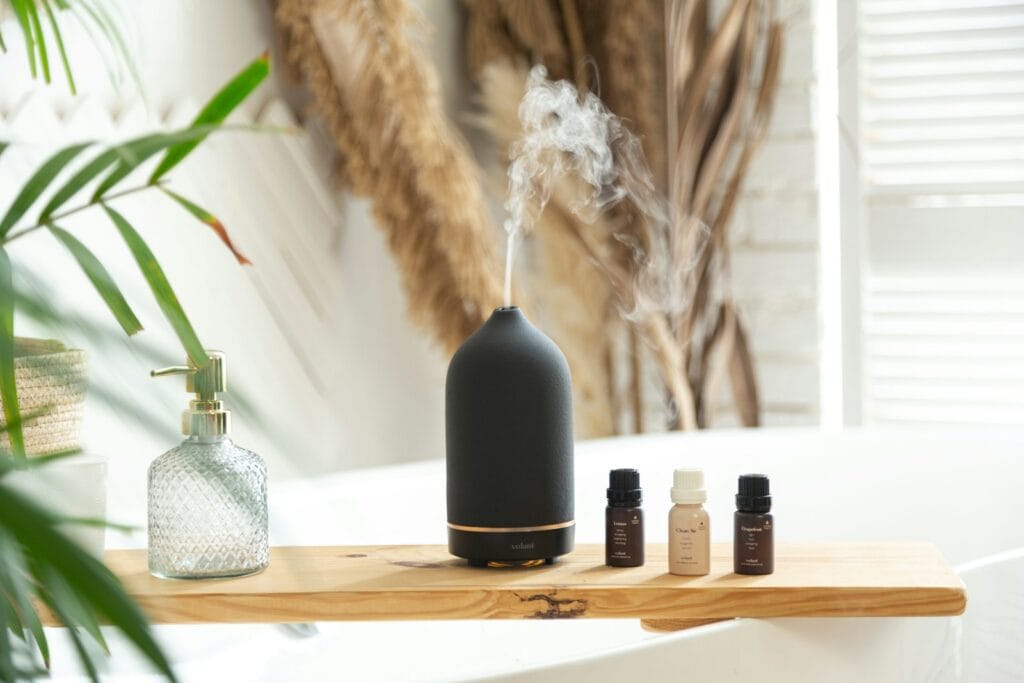Struggling to fall asleep? Honestly, who isn’t these days? With so much going on, it’s tough to actually switch off at night. The upside? There are some easy, natural ways to help your mind and body get ready for sleep.
Building a relaxing bedtime routine—like reading, stretching gently, or even a bit of meditation—can really boost your sleep quality. These methods, backed by research, help slow your nervous system and let your body know it’s time to rest. When you make time to wind down, you’re more likely to fall asleep faster and stay asleep.
You don’t need anything fancy or time-consuming. Even 15 or 20 minutes of winding down can help. Whether it’s reading a physical book or doing some gentle stretches, these natural habits tell your body it’s bedtime. The trick is to find what actually works for you and stick with it most evenings.
Establishing an Effective Bedtime Routine
A regular bedtime routine tells your body it’s time to slow down. Good habits before bed can make a real difference in how well you sleep and help keep your sleep-wake cycle on track.
Creating a Consistent Sleep Schedule
Going to bed and waking up at the same time every day helps your circadian rhythm (basically your internal clock). This kind of regularity can improve your sleep quality over time.
Even on weekends, try to keep your schedule steady. Your body makes more melatonin—the sleep hormone—when you follow a routine.
Tracking your sleep in a journal can help you spot patterns and figure out what works for you.
Sample sleep schedule:
- Start winding down: 9:00 PM
- Bedtime: 10:30 PM
- Wake up: 6:30 AM
When your body knows what’s coming, it’s easier to fall asleep and get restful sleep.
Limiting Screen Time and Blue Light Exposure
Screens give off blue light, which messes with melatonin and keeps your brain wired. This can make falling asleep a lot harder.
Try to put away your devices at least an hour before bed. That means:
- Phones
- Tablets
- Laptops
- TVs
If you really have to use a screen, maybe try:
- Night mode settings
- Blue light blocking glasses
- Apps that filter blue light
Reading a book instead of scrolling your phone is a good swap—it calms your mind without the blue light. Most people find paper books work better than e-readers for sleep.
Cutting back on screens also means you’re not bombarding yourself with stressful news or social media right before bed.
Optimizing Your Sleep Environment
Your bedroom matters—a lot. Make it a spot that feels relaxing and signals to your brain that it’s time to wind down.
Try to keep your room:
- Dark (blackout curtains are a game changer)
- Cool (somewhere around 65-68°F or 18-20°C works for most)
- Quiet (white noise machines can help)
- Tidy and uncluttered
Your mattress and pillows count too. Go for whatever feels comfortable and supports your body. Breathable, natural fabrics can make a difference.
Keep work stuff, computers, and TVs out of the bedroom. The goal is for your brain to connect your room with sleep—not stress.
Having a calming routine in your cozy space helps your mind and body get ready for sleep.
Relaxation Techniques to Unwind Before Bed
Adding some relaxation techniques to your nightly routine can really help your body shift into sleep mode. These simple practices can slow your heart rate, lower stress, and quiet your mind.
Breathing Exercises and Progressive Muscle Relaxation
Breathing exercises are quick and effective. Try the 4-7-8 method: breathe in for 4 seconds, hold it for 7, then breathe out for 8. Do this 3-5 times—notice how your body starts to relax?
Progressive muscle relaxation is another good one. Start at your toes and work your way up:
- Tense a muscle group for 5 seconds
- Let go and notice the difference for 10 seconds
- Move up to the next group
This helps you spot and release tension you might not even realize you have. There’s research showing this can reduce anxiety and help you sleep better.
Gentle Yoga and Stretching Routines
A little stretching or gentle yoga before bed can really help. Focus on relaxing poses, not the energizing ones.
Some good ones:
- Child’s pose
- Legs up the wall
- Supine twist
- Forward fold
Hold each pose for a few deep breaths. Even a 10-minute routine can ease tension in your back, hips, and shoulders.
No need for fancy gear or experience. Even just reaching your arms overhead or twisting gently while sitting can help your body relax for sleep.
Mindfulness and Meditation Practices
Meditation is a solid option for calming your mind at night. Even five minutes can make a difference.
Body scan meditation is especially useful. Lie down, notice each part of your body, and just pay attention to sensations—no judgment.
If your mind’s racing, try a guided meditation app with sleep-focused content. It gives you something to focus on besides tomorrow’s worries.
Or, keep it simple and do a quick mindfulness exercise: look around and notice five things you see, four things you can touch, three you hear, two you smell, and one you taste. It’s a surprisingly effective way to ground yourself and let go of anxious thoughts.
Natural Ways to Promote Deep and Restful Sleep
A good bedtime routine can help you fall asleep faster and get better rest. These natural strategies help your body and mind shift from daytime busyness to nighttime calm.
Taking a Warm Bath or Shower
A warm bath or shower before bed isn’t just about getting clean—it actually helps you sleep. The warmth raises your body temperature a bit, and when you step out, your temp drops, which mimics what naturally happens when you fall asleep.
Try to take your bath or shower about 90 minutes before bed for the best effect. Throw in some Epsom salts if you want a little extra muscle relaxation. Dimming the lights or lighting a candle can make it feel extra soothing.
Embrace a little hygge—soft towels, gentle lighting, a cozy vibe. Just keep the water warm, not hot; too much heat can be a bit much right before bed.
Drinking Herbal Teas and Natural Remedies
Some drinks can help tell your body it’s time to wind down. Caffeine-free herbal teas like chamomile or lemon balm are classic choices, and there’s some research behind them.
Sleep-friendly drinks:
- Chamomile tea (contains apigenin, which may make you sleepy)
- Valerian root tea (some people find it helps them fall asleep)
- Tart cherry juice (a natural melatonin source)
- Warm milk with honey (has tryptophan)
Sip your drink about 30-60 minutes before bed so you’re not up in the middle of the night for the bathroom. Skip the sugar—it can mess with your sleep.
Valerian root might be especially helpful for folks with insomnia, though it doesn’t work for everyone.
Listening to Relaxing Music or Sounds
Sound is powerful for sleep. Calming music or nature sounds can slow your heart rate and help you relax.
Music with 60-80 beats per minute tends to work best. You might try:
- Classical music or instrumentals
- Nature sounds (rain, ocean waves, whatever you like)
- White noise or a fan
- Guided meditations
Set a playlist or timer so it shuts off after 30 minutes—otherwise, sound all night can sometimes wake you up.
Doing this regularly helps your brain connect these sounds with sleep.
Incorporating Aromatherapy for Relaxation
Scents go straight to the parts of your brain that handle emotions, so aromatherapy can be really effective for sleep. Some smells can lower blood pressure and slow your breathing.
Popular sleep scents:
- Lavender (the classic, and well-studied)
- Chamomile
- Bergamot
- Jasmine
- Sandalwood
Ways to use them:
- Essential oil diffusers (on a timer)
- Linen sprays (spritz your pillow 10 minutes before bed)
- Sachets under your pillow
- Balms on your wrists or temples
Be careful—keep oils away from pets and kids, and don’t put undiluted oils on your skin. Start with one or two scents and see how you feel.
Making aromatherapy part of your nightly routine can help your body recognize it’s time to wind down.
Calming Activities for Mind and Body
The right evening activities can help you shift naturally into sleep. These habits signal to your brain that it’s time to rest and can become a comforting part of your routine.
Reading and Journaling Before Bed
Reading before bed is a tried-and-true way to relax your mind. Go for light books or magazines—nothing too intense or work-related. Real books are better than e-readers since they don’t give off blue light.
Journaling is another good option. You could:
- Do a “brain dump” and jot down tomorrow’s to-dos so they’re not spinning in your head
- Write down a few things you’re grateful for
- Reflect on one positive thing from your day
Set aside 15-20 minutes for these. Keeping your book and journal on your nightstand makes it easy to remember.
Evening Strolls and Gentle Movement
A short evening walk can help you unwind. Aim for 10-15 minutes, moving at a relaxed pace about an hour or two before bed. The fresh air and movement can lower stress.
You could also try:
- Light stretching for tense muscles
- Easy yoga poses like child’s pose or legs-up-the-wall
- Slow breathing paired with gentle movements
Keep it mellow—nothing too intense. Listen to your body and stick with what feels calming.
Cuddling, Skincare, and Other Self-Care Rituals
Physical touch, like cuddling with a partner, kid, or pet for a few minutes, can release oxytocin and help you relax.
A simple skincare routine signals to your brain that bedtime’s coming. Try:
- Washing your face with warm water
- Applying a nighttime moisturizer, maybe with a gentle massage
- Using products with calming scents like lavender
Other self-care ideas:
- Taking a warm bath or shower before bed
- Meditation focused on your breath
- Listening to soothing music or nature sounds
Addressing Persistent Sleep Challenges
If you’ve tried different calming techniques and sleep still isn’t happening, it might be time to look a little closer. Keep a sleep journal for a couple of weeks—note when you go to bed, when you wake up, and any patterns you notice.
Consider talking to your doctor if you:
- Can’t fall asleep within 30 minutes most nights
- Wake up a lot during the night
- Still feel tired even after enough sleep
Sometimes it’s a medical thing or a medication side effect. A healthcare provider can help figure it out.
If your mind just won’t quit, puzzles or crosswords can be another way to distract yourself and settle down.
Frequently Asked Questions
Lots of people have trouble falling asleep. Exploring different relaxation methods and building a calming bedtime routine can help you drift off more easily and get better sleep.
What relaxation techniques can help adults fall asleep more easily?
Picking up a book before bed? That can actually help you sleep better. A randomized controlled trial found that reading in bed lets your body slow down, and you’re not getting that harsh blue light from screens either, so it’s a double win.
Meditation is another solid option. Focusing on your breath calms your nerves and slows your heart rate. It’s a simple way to reduce stress and anxiety, and it kind of nudges your brain into a more restful state.
Deep breathing exercises are worth a shot too. The 4-7-8 method is popular: breathe in for 4 seconds, hold it for 7, then let it out for 8. It sounds a bit odd at first, but it can really make you feel more relaxed.
What activities are recommended for a calming pre-sleep routine?
A warm bath or shower about an hour or two before bed can work wonders. When you step out, your body cools down, which signals it’s time to sleep. Simple, but surprisingly effective.
Gentle stretching is a favorite among sleep experts. Stretching before bed can help melt away some of the day’s stress, making it easier to drift off.
Journaling for 10-15 minutes can clear your head. Write down what’s on your mind or tomorrow’s to-dos—just getting it out on paper can keep your thoughts from spinning when you’re trying to fall asleep.
What are some effective stress-relief methods to practice before bedtime?
Progressive muscle relaxation is a classic. Start at your toes, tense each muscle group for five seconds, then let go. It’s a bit quirky, but it really can help your body unwind.
Listening to calming music or nature sounds is another easy win. Tracks with 60-80 beats per minute match a relaxed heart rate and can help you settle down.
Aromatherapy with lavender or other soothing scents can set the mood for sleep. You could use a diffuser, a linen spray, or even a little scented lotion—whatever feels right.
How can individuals with anxiety create a conducive environment for restful sleep?
Try to keep your bedroom cool, dark, and quiet. Blackout curtains help, and a white noise machine can drown out distractions. Somewhere around 65-68°F (18-20°C) is usually pretty comfortable.
Avoid screens at least half an hour before bed. That blue light from your phone or computer? It tells your brain to stay up and messes with your natural melatonin.
If your mind won’t quit racing, keep a worry journal. Write down what’s bugging you and possible ways to handle it. Sometimes just seeing it on paper makes it easier to let go.
What are the best habits to adopt for a soothing transition to sleep?
Try sticking to a regular sleep schedule. Going to bed and waking up at the same times every day helps your body know when it’s time to rest.
Cut back on caffeine after noon, and don’t go overboard with alcohol in the evening. Both can mess with your sleep, even if you don’t notice it right away.
Keep work out of your bedroom, especially if you work from home. It’s tough, but separating work and rest spaces can really make your bedroom feel like a place to relax.
How can someone with ADHD establish a consistent wind-down process at night?
Make a visual checklist of your bedtime steps. Keeping it somewhere you’ll see—like on your nightstand or taped to the wall—can be a real lifesaver when your mind starts to drift.
Set a few alarms to help with the transition. Maybe one an hour before bed, then another at 30 minutes, and a final nudge at 15. Those reminders can gently push you to start slowing down, even if you’re tempted to keep scrolling or watching TV.
Weighted blankets might be worth a shot, too. That steady, gentle pressure? Honestly, it can feel pretty soothing, especially if your brain tends to race or you get fidgety at night.




